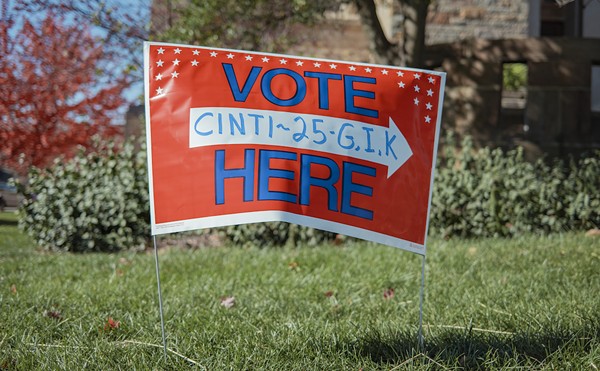|
New-World RCRD: New music 'label' tries a different approach The Revolution Train´s been rolling for a couple months, so it´s no surprise that it´s finally pulled into the local station. Yet another music marketing vehicle, doing business at RCRDLBL.com, recently cut a deal with the homeboys Bad Veins, so we´re checking it out.
RCRD LBL isn´t a record label in the traditional sense, but more like a TV station, buying content at a flat rate and generating income with advertising. The concept seems old school, but it might have some legs.
RCRD LBL is essentially a music blog, like Pitchfork, that links free video and song downloads. The ¨about¨ section explains that it´s an aggregation service for labels — logical enough if they need music people actually want to hear!
Logical or not, this suggests many conflicts of interest: Is there value to editorial content on a site deeply beholden to client/labels for content and income? Are they serving the best content or table scraps? Do they offer any unique benefits in terms of exposure?
That last one interests me most.
Why would a band sign to a label that treats it like every other band? Should a label deal with an ad-based entity that gives preferential treatment to artists on the entity´s owner/labels? The answers to these questions are related. Money is the great leveler.
This leveling explains the absence of Gnarls Barkley, superstars of founding partner Downtown Records. Rather than skew the payment formula, established bands that still sell records remain missing in action. Given that iTunes is the third largest music retailer, it makes no sense to give away products that generate a buck per track!
Artists grant RCRD LBL exclusive downloads for a flat rate, on a song-by-song basis. They don´t license albums and they offer no production deals. Unlike a label deal, popularity of your music is unrelated to what you earn. You get a single lump-sum payment based on your band´s popularity when you make the deal. If your song becomes a hit, you give up the opportunity to sell it on iTunes or re-negotiate, while RCRD LBL continues giving it away.
Nothing is obvious about RCRD LBL. While the name suggests it´s a label, you´re presented with links to many labels (including some you´ve heard of), and the deeper you go, the more confusing it seems. The aesthetic is more MySpace than Amazon, with ugly, chaotic layouts and ads junking up the view. But, hey, you get what you pay for, and this site´s entirely free.
The music served and discussed on the site covers many genres but is focused on new, independent artists. At its core it´s just a blog that affiliates with labels and artists to hype music and related products. The advertised products generate money to license the tracks given away on the site.
So RCRD LBL isn´t a label at all. But it is potentially a good way for artists to generate some pocket change and introduce themselves to advertisers.
One of my favorite groups, Gang of Four, lists four tracks on the site. I downloaded them, only to discover they´re incomplete! Instead of two to four minutes, each is chopped — brutally — to about one minute. I felt burned: I can listen to previews all day long for free from virtually any artist I want to hear. Making previews twice as long doesn´t make them songs and giving away previews isn´t groundbreaking.
Sadly, very few of the artists seem to take advantage of the site´s blogging features and the content is nowhere near the quality of Pitchfork, much less the dead-tree fare of Rolling Stone. I couldn´t find a search tool, and the lack of editorial content makes discovering new music a little tough.
This isn´t to say the content is bad. It´s early in the game. For now there´s a ton of great, free content from the kinds of up-and-coming bands you might see at The Southgate House.
Low-selling bands could make more money on RCRD LBL than the same tracks might earn on iTunes. And that´s really the whole idea: RCRD LBL isn´t really a record label but a secondary revenue stream for artists and conventional labels.
RCRD LBL has made a decent first effort at linking ads to music. It´s created a model for other music blogs to follow: Many bands already offer up downloadable tracks for music blogs to review, so it´s a short step to licensing tracks outright. And while it´s not a great music blog or download site (yet), it is a great place to grab full-length tracks from fresh artists.
DAVE DAVIS makes records and designs new media at Sound Images.





